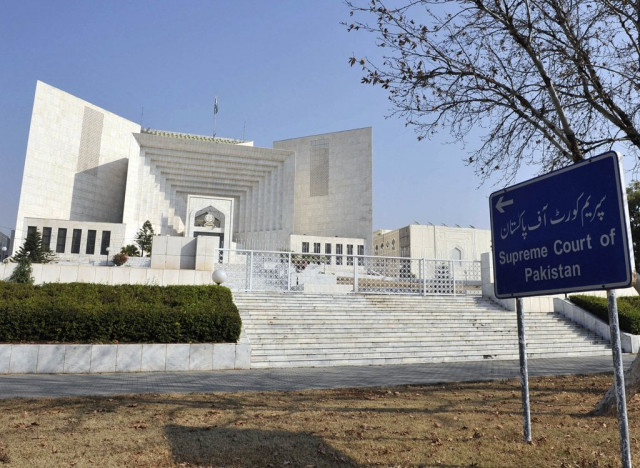SC seeks details of extradition treaties with US, UK
Summons AGP, foreign ministry officials in case of Talha Haroon

The Supreme Court (SC) on Monday sought details regarding Islamabad's extradition treaties with the United States and the United Kingdom.
The details were sought in the case of Talha Haroon, one of the three men accused of plotting attacks to be carried out in New York City.
A three-judge bench, headed by Justice Mushir Alam, heard the case.
The court restrained the extradition of the accused to the US till further orders and summoned the attorney general and relevant officials of the foreign ministry along with the record.
During the proceedings, the court also inquired into the number of people extradited by Pakistan from the US and the UK and the number of people extradited from Pakistan.
Justice Qazi Amin asked, “If there is no agreement between Pakistan and the US, how can extradition take place between the two countries? By the way, the US takes away whomever it wants without any agreement.”
Justice Amin said, “What is the evidence on the basis of which the accused should be handed over? Pakistan is a sovereign state. We will protect our citizens according to the law.”
The petitioner's counsel prayed the court that a single bench of the Islamabad High Court (IHC) had ruled that the evidence of handing over Talha Haroon to the US was not admissible.
“The inquiry is left to the magistrate,” he said. “It is feared that the magistrate will hand over the accused Talha Haroon to the US.”
The apex court adjourned the hearing for two weeks.
Last year in May, the IHC barred the government from handing over the American citizen of Pakistani origin to the US. Haroon is accused of being involved in planning an attack in New York City.
Haroon, 19, was arrested in Pakistan in 2016 after the US authorities identified him as one of the three men planning attacks, including detonating bombs, in Times Square and the New York City subway system and shooting citizens at specific concert venues. The other two were identified as a Canadian citizen and a man from the Philippines.
Justice Mohsin Akhtar Kayani had announced the verdict on a petition filed by Muhammad Haroon, father of the accused, challenging the district administration’s decision to extradite his son to the US.
Justice Kayani had observed that a citizen could not be extradited solely on the basis of postal correspondence between Islamabad and Washington.
The high court said that the investigation officer probing the matter in the US and Haroon's lawyer should appear before an inquiry magistrate. The inquiry magistrate was directed to decide the case within 60 days.
The federal government had filed an intra-court appeal against the decision, which was upheld by a two-judge bench of the IHC, which annulled the decision of the US investigating officer to appear before an inquiry magistrate in Pakistan though which the extradition would have been made easy.
The family of the accused then filed an appeal in the SC against this decision.



















COMMENTS
Comments are moderated and generally will be posted if they are on-topic and not abusive.
For more information, please see our Comments FAQ